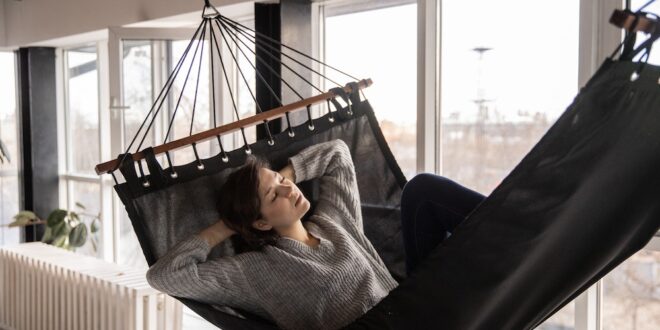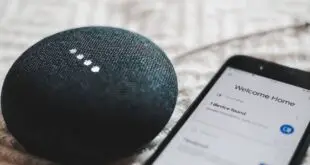It has become a norm to binge-watch movies or your favorite Netflix seasons till late at night. But have you ever thought this activity disrupts your natural circadian rhythm?
Staying up late is another story, but using technology has its own negative impacts on your sleep and overall health that you must be aware of. It is no secret that smartphones are an indispensable accessory in this era.
Everyone keeps their phones close at hand 24/7, to say the least. But only a tiny population knows that excessive use deteriorates not only eye health but also sleep and creativity.
This article explains everything you need to know about how tech affects your sleep and how you can save yourself from further harm. Continue reading to get a thorough understanding.
Blue Light Emission
The human body has its own sleep-wake cycle that triggers sleepiness or wakefulness according to the sunlight. This cycle is termed circadian rhythm.
When the sun sets, and it turns dark, your body starts feeling tired due to the melatonin hormone, thus making you resign yourself to bed, and the crack of dawn lets you rise and embrace a beautiful morning.
This whole natural cycle is disturbed due to technology and blue lights emitted from the screens.
No matter what screen you use, its light tricks your mind into thinking it’s still daytime and makes you stay alert. In turn, your body releases less Melatonin so that you will feel less sleepy.
Longer use of screens at night makes your body accustomed to it, and you find it much harder to fall asleep early than usual. This habit can further escalate to insomnia and weaken eye health.
What is Blue Light?
Blue light, High-energy visible (HEV) light, is one of the colors in visible light in sun rays. It is the light emitted through smartphones, computers, tablets, laptops, TV and every screen you can think of.
The wavelength of blue light is very similar to the sunlight, thus making it easy for you to see the content on screens even under bright sunlight. However, the human eye cannot filter blue light as effectively as other colors, which is the main reason behind its benefits and risks.
The proximity of screens makes it very unhealthy for us to lengthen the exposure time.
Electromagnetic Radiation
Electromagnetic radiation emitted through electronic devices is also a significant concern regarding sleep patterns. Just like blue light, EMR also affects Melatonin’s release, hence dysregulating its release for maintaining your internal clock.
Studies have claimed EMRs released from cell phones are harmful even when placed near your pillow during sleep. This is an explanation enough on how negatively it can impact your health and rest while you are actually using a screen.
EMR can cause a lot of symptoms as follows:
- Sleep Disturbance
- Increased Sleep Latency
- Daytime sleepiness
Addiction
Social media, variety shows, casino mobile games, Music videos, Movies, Seasons and search engine apps are addictive. You want to keep on scrolling and fight hard not to fall asleep. The more you indulge yourself in such activities, the more your sleep quality will plummet.
Gaming is also a significant factor in sleep disruption as it spikes up the adrenaline rush, making your brain more active.
Tips For Improving Sleep
The damage from technology on sleep patterns can be undone if you start changing your habits. Here are a few things you can follow for better sleep quality.
Keep a Sleep Journal
The best way to improve your sleep quality is to keep a journal and schedule your activities. You can keep tabs on your everyday sleeping activity and make resolutions for the coming days.
Your sleep journal can include a schedule and record of the following:
- Average Bedtime
- Sleep time
- Intermittent sleep pattern for each day
- Wake up time
- Naps
- Things that affect your sleep
And other things that you might want to include
Leave Screens at Least 2 Hours Before Bed
Many research studies have shown that leaving the screen at least 2 hours before giving in to bed can work wonders. You will not only fall asleep faster but also improve your sleep quality. So, if you want to complete your search for the best video games, a list of Australian online casino reviews, or anything else you’ve scheduled to do while lying in bed at night, reschedule it for the morning.
This routine will help you reset your circadian rhythm, and even if you initially wake up in the middle of the night, there is no need to worry. Your body will get used to the routine soon enough. You must persistently schedule your last screen time 2 hours before sleeping and notice the clear difference.
 Being Human
Being Human




